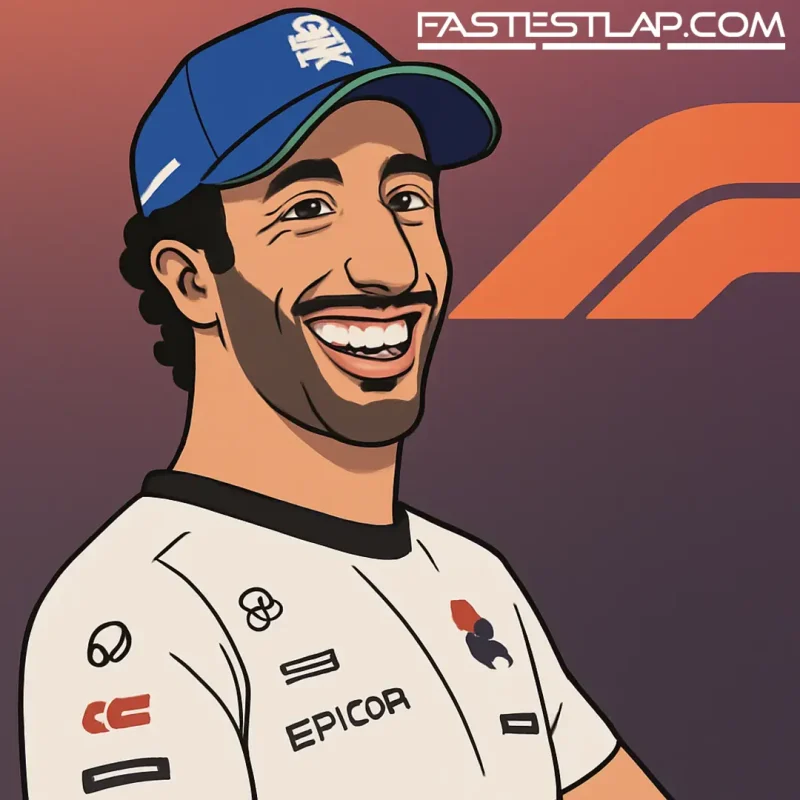Daniel Ricciardo’s F1 legacy was never just numbers on a page
A year on from the night he slipped out of Singapore with a quiet nod rather than a curtain call, Daniel Ricciardo’s absence is still felt. No farewell tour, no last-lap theatrics; just a veteran with eight grand prix wins deciding that was enough, long before anyone typed out the press release. He’d formally hang up the helmet later, tied to a new role with Ford, but in truth Marina Bay was the send-off.
Ricciardo’s story is partly a tale of timing. At his best, he was box-office: the late-braking assassin who seized Canada 2014 when Mercedes stumbled, the grinning Red Bull upstart who outscored Sebastian Vettel that year and put fear into mirrors all over the grid. In a different era, that edge probably makes him a perennial title contender. Instead, he ran into the double-wall of Mercedes’ juggernaut and Max Verstappen’s rise, and precious few drivers survive that squeeze with their reputations intact.
That context matters when we talk about legacy, because Ricciardo’s place in F1 was never purely defined by the stopwatch. The paddock misses the human things: the looseness in a sport that often speaks in polished PR, the willingness to joke, the sense that what you saw was the person, not the brand. It wasn’t a character created for Drive to Survive; it’s why Drive to Survive worked. He connected. In a period when F1 leapt into new markets and living rooms, Ricciardo was a gateway driver for millions — especially in the U.S. — the reason casual fans learned the difference between a two-stop and a one-stop.
Of course, the results do tell part of the story. Red Bull Ricciardo was formidable. He made a career of the dive-bomb that stuck, the uncompromising move that said: you’re not pushing me around. Those peak seasons marked him out as the guy you’d trust in the last 10 laps of a race that needed winning. And when he chose to walk away from Red Bull the first time, you could see the logic even if you didn’t like the risk: Verstappen wasn’t just quick, he was inevitable. Staying meant being second by default.
Renault (soon Alpine) didn’t deliver the platform he needed, even if the podiums were a reminder of the driver underneath. McLaren, infamously, delivered the mystery. The 2021 Monza win will always shine, but the rest — the struggle to sync with the car, the gaps that didn’t close — became the question he never really answered. Talent doesn’t evaporate. Confidence can. By the time he returned to the Red Bull fold with its rebranded junior outfit, there were flickers — Mexico 2023, Miami Sprint 2024 — but not enough ignition to force a promotion. When Red Bull kept Sergio Pérez for 2025 and beyond, Ricciardo’s lane narrowed to a development cul-de-sac.
So Singapore 2024 made sense in a hard, pragmatic way. The sport moves, and he refused to cling. That’s to his credit. Ricciardo understood the difference between being on the grid and belonging on the grid — a standard he set for himself a decade earlier with those ruthless passes into Turn 1.
If you split the career into two acts — pre-McLaren and post — the temptation is to write the second off as decline. That’s too simple. The sport evolved around him, cars did too, and the margins got thinner while Verstappen went supernova. The thing that lingered wasn’t just lost pace; it was the feeling of unfinished business. Red Bull’s second chance looked, briefly, like a repair job with a happy ending. It wasn’t. The ending was quieter, more human, and ultimately honest.
Which brings us back to legacy. On track, Ricciardo was better than the record suggests and sometimes braver than the circumstances allowed. Off it, he mattered in ways that don’t fit in a stats column. He made the paddock lighter without taking the racing lightly. He helped F1 sell itself not as a product but as a personality contest with 1,000 horsepower underneath. And for a while, when he lined up three car-lengths back and still chose the inside, he made you lean in to watch the move you knew was coming.
No, he didn’t become world champion. He’ll land in that awkward category: the “what if” star whose peaks were high and whose choices were his own. But if the test of a driver is whether the sport feels different after they leave, Ricciardo passes. F1 is bigger now than when he arrived. He’s not solely responsible for that. He was simply a big reason why it felt welcoming as it grew — genuine, cheeky, occasionally bruising, and always worth a look when the braking boards flashed by.




